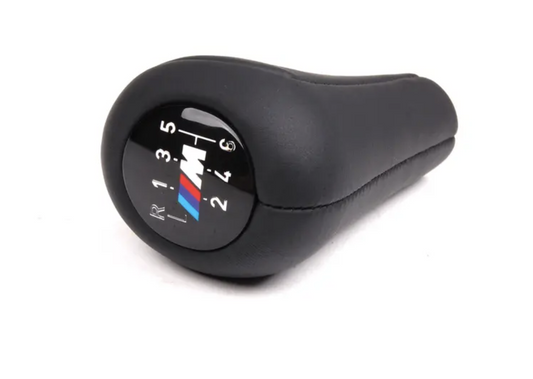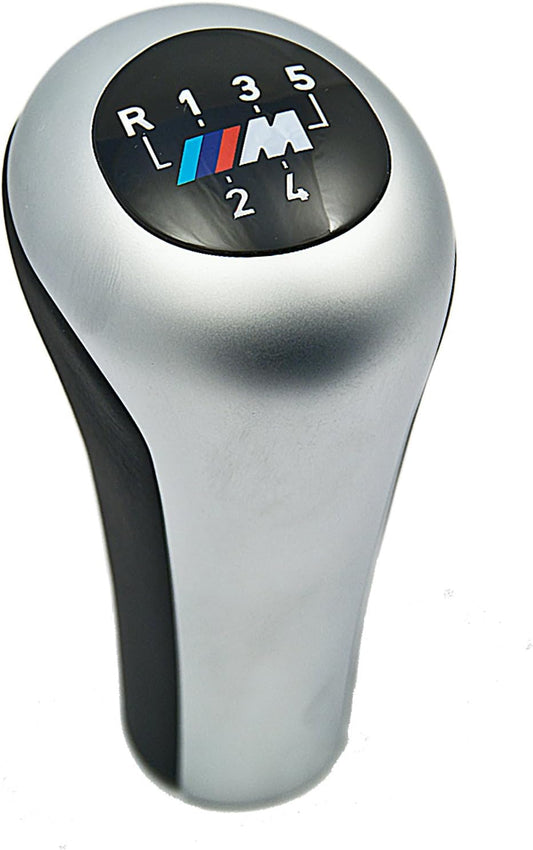
Complete Guide to Choosing the Perfect Oil for your BMW: Ensure the Performance and Longevity of your Engine
Complete Guide to Choosing the Perfect Oil for your BMW: Ensure the Performance and Longevity of your Engine
Introduction: Taking care of your BMW engine is essential to prolong its life and ensure optimal performance. One of the most important aspects of engine maintenance is choosing the right oil. In this article, you will learn about the importance of selecting the correct oil for your BMW, how it affects engine performance, and what to consider when making your choice. In addition, we will provide you with practical tips for changing the oil and how to avoid common mistakes.
Why is Choosing the Right Oil Vital?
Oil not only lubricates the moving parts of the engine, it also helps clean, cool, and protect the engine from wear. Using the wrong type of oil can result in premature wear and serious failures. Here's one more reason to choose wisely: The oil recommended by the manufacturer always guarantees better performance. Additionally, using high-quality oils can improve fuel efficiency and reduce emissions, which is beneficial for both your vehicle and the environment.
The right oil can also help keep engine temperature under control, which is crucial to prevent overheating, especially in demanding driving conditions such as heavy traffic or extremely hot climates. Therefore, investing in a good oil is a way to protect your investment in the long term.
Factors to Consider When Choosing Oil for your BMW
- Goo: Selecting the proper viscosity is crucial. Most BMWs require 5W-30 or 0W-40 viscosity oils for optimal performance. Viscosity affects the oil's ability to flow through the engine, especially in cold temperatures. An oil with the incorrect viscosity may not provide the necessary protection when starting the engine in cold conditions or may not lubricate adequately in high temperatures.
- API Classification: Look for oils with API SL classification or higher to ensure the necessary quality. These ratings indicate that the oil meets certain standards for engine performance and protection. Using an oil with a lower rating may not provide adequate protection against wear and corrosion.
- Driving Conditions: If you drive in extreme conditions, consider oils designed for those specific situations. For example, if you frequently drive in mountainous areas or in very hot conditions, an oil that offers greater thermal stability could be beneficial.
- Manufacturer Recommendations: Always consult your vehicle's manual for the exact specifications of the recommended oil. This will ensure that you are using a product that has been tested and approved specifically for your BMW model.
How to Change the Oil in your BMW
It's not just about choosing the oil, you also need to know how to change it properly. Here's a step-by-step guide to performing a successful oil change:
- Gather all the necessary supplies: oil, oil filter, filter wrench, and a drain pan. Make sure you also have a funnel to make pouring the new oil easier.
- Place your BMW on a flat, safe surface. It is advisable to use chocks to ensure that the vehicle does not move during the process.
- Remove the drain plug and drain the used oil. Dispose of old oil responsibly. Many workshops and recycling centers accept used oil for proper disposal.
- Change the oil filter, making sure to grease the gasket beforehand. This helps create a proper seal and prevents leaks. Make sure the new filter is compatible with your BMW model.
- Pour in the new oil, making sure not to overfill. Consult your manual to find out the exact amount of oil your engine needs.
- Check the levels using the dipstick. Make sure the oil level is between the minimum and maximum marks.
- Start the engine and let it run for a few minutes. This allows the new oil to circulate throughout the engine. Then, turn off the engine and check the oil level again, adjusting if necessary.
Remember that a regular oil change not only keeps your engine running smoothly, it can also help identify potential problems before they turn into costly repairs.
When is it Time to Change the Oil?
The frequency of changing the oil depends on the model of your BMW and the conditions in which you drive. Generally, it is recommended to change the oil every 10,000 km. However, always check the user manual or consult a professional. Under severe driving conditions, such as frequent short trips or driving in extreme weather, it may be necessary to change the oil more frequently.
A clear indicator that it's time to change the oil is when the oil looks dark and dirty on the dipstick. Additionally, if the engine starts to sound noisier than normal, it could be a sign that the oil has lost its effectiveness.
Benefits of Using High Performance Oils
- Better Engine Protection: Protects moving parts from friction and heat. This is especially important for high-performance engines that operate at higher temperatures.
- Optimal Performance: Ensures your BMW runs efficiently. A high-performance oil can improve engine response and fuel economy.
- Long Motor Life: Reduces wear and prolongs engine life. This can translate into fewer repairs and lower maintenance costs over time.
- Thermal Stability: High-performance oils typically offer better resistance to oxidation and breakdown at high temperatures, which is crucial for keeping your engine clean and free of deposits.
Discover our high performance oils to maximize the performance of your vehicle.
Common Errors When Choosing Oil for BMW
A common mistake is to opt for lower quality oils under the assumption that there is no significant difference. However, this can lead to debris buildup and poor engine performance. Additionally, using oils that do not meet the manufacturer's recommended specifications may void the vehicle's warranty.
Another common mistake is not changing the oil regularly enough. Although some modern oils are designed to last longer, it is important not to exceed the recommended intervals, as the oil can lose its protective properties over time.
Finally, not checking the oil level regularly can lead to serious problems. An oil level that is too low can cause engine damage due to lack of proper lubrication. It is advisable to check the oil level at least once a month and before long trips.
Conclusion:
Choosing and changing the right oil for your BMW not only ensures better performance, but also extends the longevity of your engine. Applying the tips and steps mentioned in this article, along with the use of high-quality oils, will help your BMW maintain its power and efficiency for many years to come. Don't forget to visit our site to explore a range of oils designed specifically for BMW! By properly caring for your vehicle, you are not only protecting your investment, but you are also ensuring that every trip is safe and enjoyable.
Special Care for BMW Convertibles
BMW convertibles require special care to maintain their appearance and functionality. Here are some tips to keep your BMW convertible in the best possible condition.
Convertible Top Maintenance
The roof of a convertible is one of the parts most exposed to the elements, so it is crucial to keep it in good condition. Here are some roof care tips:
- Regular Cleaning: Clean the roof regularly with specific products for convertible roofs. Avoid using aggressive detergents that could damage the material.
- Waterproofing: Apply a waterproofing product to protect the roof from rain and moisture. This will help prevent leaks and water stains.
- Seal Inspection: Regularly check roof seals and joints to make sure there are no leaks. Replace any damaged seals to avoid leaking problems.
Interior Care
The interior of a BMW convertible also needs special attention due to its exposure to the sun and outdoors. Here we give you some tips to keep the interior in optimal condition:
- Sun Protection: Use sunscreen on the windshield and windows when the car is parked in the sun. This will help prevent wear and discoloration of the interior.
- Upholstery Cleaning: Clean the upholstery regularly with products appropriate for the type of material (leather, fabric, etc.). This will prevent dirt buildup and keep the interior fresh.
- Ventilation: Ventilate the car regularly to avoid the build-up of moisture and bad odors. This is especially important after rainy or humid days.
General Maintenance
In addition to specific roof and interior care, there are some general practices that can help keep your BMW convertible in excellent condition:
- Periodic Reviews: Carry out regular checks at a specialized workshop to ensure that all vehicle systems are working properly.
- Body Care: Wash and wax the body regularly to protect the paint and maintain its shine. This is especially important to protect the car from the elements and pollution.
- Suitable Storage: If you won't be using your car for a long time, store it in a covered location or use a protective cover to prevent weather damage.
By following these tips, you will be able to enjoy your BMW convertible in perfect condition for many years. Remember that proper maintenance not only improves the appearance of the vehicle, but also contributes to its resale value and driving safety.










